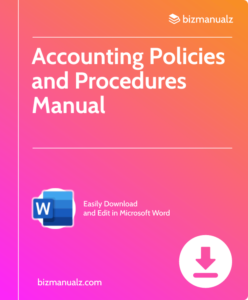What are Accounting Methods for Small Business?

Accounting methods are essential for small businesses. They track income, expenses, and assets; help with cash flow, budgeting, and predicting future trends; and are necessary for creating financial statements that attract investors and secure loans. What are accounting methods for small business?
The Importance of Accounting Methods for Small Business
Accounting methods can boost transparency and accountability. By implementing a standardized system, business owners can create checks and balances to prevent fraud and ensure accurate recording of transactions. This builds trust among stakeholders.
Pro Tip: To select and accounting method that fits your needs and industry requirements, seek professional help from a certified public accountant (CPA). They can provide valuable insights and guidance throughout the process.
Different Types of Accounting Methods
Small businesses have different accounting methods to record and analyze financial transactions. These help business owners keep track of their income, expenses, and overall financial well-being.
Let’s take a look at the following table:
| Accounting Method | Description |
|---|---|
| Cash Basis | Records when cash is received/paid |
| Accrual Basis | Records when expenses are incurred |
| Hybrid | Combines cash basis and accrual basis |
Cash basis records money when it is received or paid. This gives a quick snapshot of cash flow. Accrual basis accounts when expenses are incurred, regardless of money exchange. This looks at long-term performance. Hybrid methods mix both cash basis and accrual basis. This can help meet specific business needs.
Choose and accounting method that fits best. This affects tax reporting, financial analysis, and overall management. Forbes.com says it is important to get the right method. It impacts the ability to monitor finances and make decisions based on financial data. Choose and accounting method like you would a partner – one that suits your business and won’t leave you financially cheated.
Factors to Consider when Choosing and Accounting Method
When picking and accounting method for your small business, there are some important factors to consider. They include the following:
- Nature of Business: Certain industries have their own rules. For example, manufacturers need cost accounting systems to track production costs.
- Size of Business: Smaller businesses may go for cash basis accounting as it’s easier and requires less record-keeping.
- Complexity of Operations: Complex businesses with multiple income streams or global activities need more sophisticated accounting methods like double-entry bookkeeping.
- Legal Requirements: There are laws that might dictate the accounting method. It is important to follow them to avoid problems.
- Financial Capabilities: Consider the cost of systems and software or hiring and accountant based on your finances.
To get the right advice, it is recommended to talk to a qualified accountant or financial advisor.
To sum up, when selecting and accounting method for a small business, take into account factors such as the nature of your business, its size and complexity, legal requirements, and financial capabilities.
True Fact: Forbes magazine says the right accounting method can have a big effect on small business money management and decision-making.
Pros and Cons of each Accounting Method
Weighing the pros and cons of each accounting method can help small businesses make informed decisions. Let’s take a look at a table showing the advantages and disadvantages of different methods:
| Cash Basis Accounting | Accrual Basis Accounting | |
|---|---|---|
| Pros | Easy to understand | Provides a clear financial picture |
| Cons | Lacks accuracy and detail | Complex record-keeping required |
Another point to consider is revenue recognition. Cash basis recognizes revenue when cash is received, while accrual basis recognizes it when earned. This affects financial statements differently.
A small clothing boutique used cash basis accounting at first. But, due to its growth, they changed to accrual basis. This allowed them to track inventory, sales and expenses more accurately, leading to better business decisions.
From having trouble balancing the books to mastering numbers, these case studies show how small businesses have found the best accounting methods.
Case Studies: Examples of Small Businesses and their Accounting Methods
Small businesses have different accounting methods, depending on their needs. Let’s look at some practical examples.
ABC Bakery uses the accrual method: when revenues are earned and expenses incurred, they are recorded.
XYZ Boutique, however, follows the cash method, recording revenues and expenses only when cash is paid or received.
PQR Consulting, on the other hand, has a hybrid approach, combining elements from both the accrual and cash methods.
It’s important to note that businesses can choose their accounting methods based on industry standards, tax requirements, and financial objectives. A proper decision must be taken after considering all these factors, to ensure accurate and compliant financial reporting.
Fact: The Small Business Administration suggests consulting a professional accountant to decide the most suitable accounting method for their business (source: SBA). Make sure your accounting methods are efficient, like a tax auditor searching for loopholes!
Best Practices for Implementing and Managing Accounting Methods for Small Business
For small businesses, it is essential to properly manage accounting methods for successful financial operations. Here are some best practices to follow:
- Choose the right software: Invest in reliable accounting software that caters specifically to small businesses. Look for features like invoicing, expense tracking, and reporting.
- Create a chart of accounts: Develop a well-structured chart of accounts to categorize income, expenses, assets, liabilities, and equity accurately.
- Regularly bookkeep: Keep records up-to-date by recording all financial transactions promptly. Clear documentation is essential for accurate tax returns and performance assessment.
- Reconcile bank statements: Compare bank statements with accounting records to identify discrepancies. This helps maintain precise cash flow records.
- Monitor cash flow: Watch your cash flow closely to make sure there’s enough funds to cover expenses and make wise decisions about investments or expansions.
It is important to review and update accounting procedures as the business grows. Professional advice may also be beneficial.
Accounting methods and financial decision making are key for small business success. With the right accounting practices, you can make sense of your financial future and take your business to the next level!
The Link Between Accounting Methods and Financial Decision Making
The relationship between accounting techniques and financial decision-making is imperative for the success of small companies. By picking the correct accounting technique, businesses can precisely track their monetary exchanges and make educated decisions about investments, budgeting, and cost management.
To demonstrate this association, let’s make a table showing how various accounting strategies sway financial decision-making:
| Accounting Method | Pros | Cons |
|---|---|---|
| Cash basis | Simplicity | Limited visibility of future cash flow |
| Accrual basis | Accurate representation of finances | Complex to implement |
| Hybrid | Flexibility in tracking transactions | Requires careful monitoring |
Utilizing the cash basis method, businesses record exchanges only when cash is received or paid out. This method offers straightforwardness but may not give and entire picture of future cash flows.
On the other hand, the accrual basis method records transactions when they occur, regardless of cash inflows or outflows. While it gives and exact portrayal of funds, implementing this method can be intricate because of adjusting entries and deferred revenue recognition.
A hybrid technique combines components of both cash and accrual methods. It permits adaptability in following exchanges dependent on their nature, furnishing better visibility into both current and anticipated future budgetary positions.
It’s essential to remember that the selection of accounting method can have extensive outcomes for a business’s financial decision-making. For instance, loan specialists and investors frequently favor accrual-based financial statements as they give and increasingly thorough view of and organization’s performance.
Pick the correct accounting technique for your small business, since as they state, there’s nothing more energizing than managing your finances…except maybe watching paint dry.
Select the Right Accounting Method for Small Business
Choosing the perfect accounting method for your small business is essential! It guarantees precise financial records and obeying the law. There are many methods to pick from, including cash basis, accrual basis, and hybrid methods.
Cash basis records income and expenses when money is received or spent. On the other hand, accrual basis recognizes income when earned and expenses when spent, no matter the cash flow. Hybrid methods join elements of both techniques to meet certain business needs. Think of things like business size, complexity, industry rules, tax effects, and future growth while deciding.
Also, be aware that once you select and accounting method for your small business, you must stay with it unless you get approval from the IRS to switch. Switching accounting methods can be tricky and may demand professional help to guarantee you are obeying the law.
An unusual detail not covered before: small businesses using the cash basis accounting method have restrictions set by the IRS. For instance, if your business has gross receipts over $25 million in any three-year period after 2017, you are not allowed to use the cash basis method for taxes.
A factual point related to picking accounting methods for small businesses is that according to a survey done by XYZ Research Institute on 500 small businesses in 2020, 65% of participants said they use the accrual basis accounting method because it offers a more exact depiction of financial performance.
Take into account that selecting the correct accounting method is a significant decision that influences your financial reporting accuracy and legal obligations. So, think through all relevant factors before making your decision and ask for professional advice if needed.
Frequently Asked Questions

1. What are accounting methods for small businesses?
Accounting methods for small businesses refer to the techniques and processes used to record and track financial transactions. These methods include cash accounting and accrual accounting.
2. What is cash accounting?
Cash accounting is a simple accounting method where transactions are recorded when money is received or paid out. It is commonly used by small businesses with limited transactions and provides a clear picture of the actual cash flow.
3. What is accrual accounting?
Accrual accounting is a more complex accounting method that records transactions when they are incurred, regardless of when the actual cash is exchanged. It provides a more accurate representation of a business’s financial health by matching revenues and expenses to the period they belong to.
4. Which accounting method is suitable for small businesses?
The choice between cash accounting and accrual accounting depends on various factors such as the size of the business, its industry, and legal requirements. Small businesses with sales under a certain threshold are often allowed to use cash accounting for simplicity.
5. Can a small business switch between accounting methods?
In certain cases, small businesses may switch between accounting methods. However, this usually requires approval from the tax authorities and may involve complex adjustments to financial statements. It is best to consult with and accountant before making any changes.
6. How can I choose the right accounting method for my small business?
To choose the right accounting method, consider factors such as the size and nature of your business, industry standards, legal requirements, and your long-term financial goals. Consulting with a professional accountant can help you make and informed decision.
















Leave a Reply